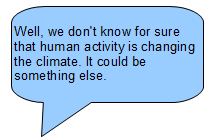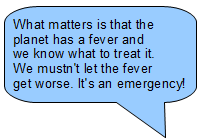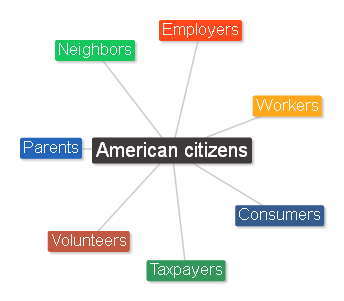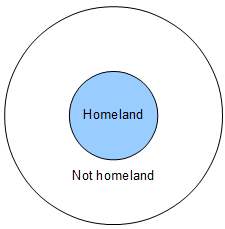Framing political opinion as either left or right puts people into boxes that often don’t fit them. George Lakoff identifies basic two systems of moral reasoning, which he calls the “strict-father model” and the “nurturant-parent model.” His books about politics and many of his blog posts describe these, and I strongly recommend reading Lakoff. So far this seems to support the left-right political spectrum, right?
Ah, but Dr. Lakoff’s research has found that many–if not most–Americans use both systems of moral reasoning on different political issues. For example, I want government to be a nurturant parent toward citizens most of the time but a strict father toward misbehaving corporations. All of a sudden, we’re not just one or the other.
I think a better metaphor than the left-right political spectrum is the Political Compass. This makes left and right one axis and authoritarian-libertarian a second axis. Take its test and see what you think!
A potential problem for this system in America is that the term libertarian refers to a specific set of ideologies and even a political party. I do think that progressives should talk about authoritarianism when appropriate. But if we don’t want to advertise the libertarian movement, what term should we use as the opposite of authoritarian?



